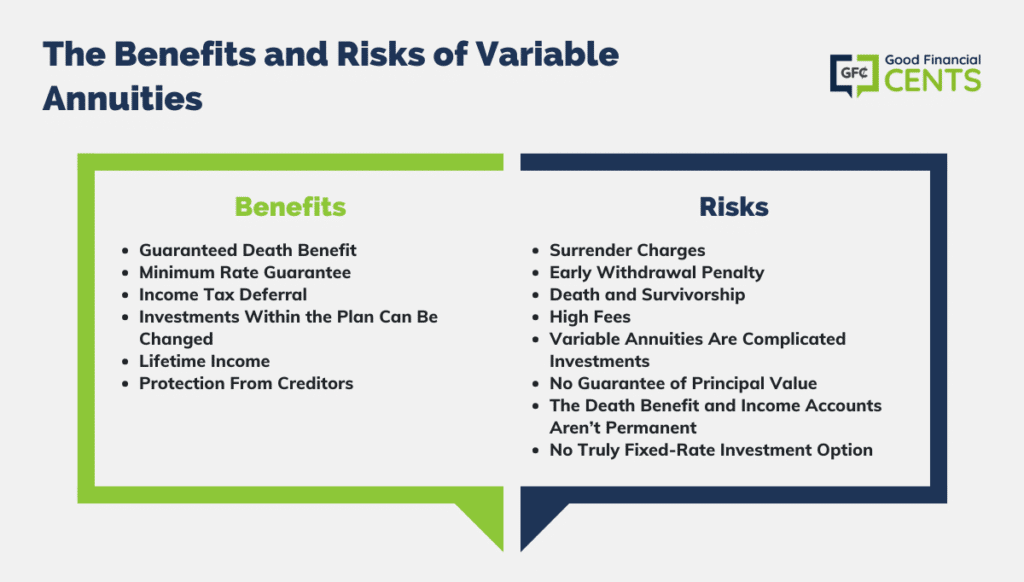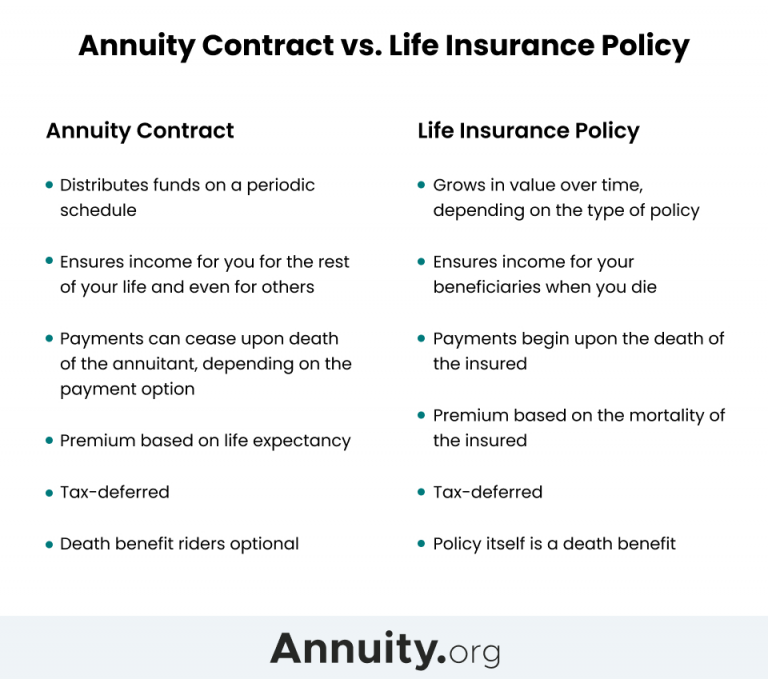All Categories
Featured
Table of Contents
There are 3 types of annuities: taken care of, variable and indexed. With a taken care of annuity, the insurer guarantees both the rate of return (the passion rate) and the payment to the investor. The rates of interest on a dealt with annuity can change with time. Usually the rate of interest is fixed for a variety of years and afterwards adjustments regularly based upon current prices.
With a deferred set annuity, the insurance provider consents to pay you no less than a specified rate of rate of interest as your account is expanding. With an instant fixed annuityor when you "annuitize" your delayed annuityyou receive an established fixed amount of cash, usually on a monthly basis (comparable to a pension).
While a variable annuity has the benefit of tax-deferred growth, its yearly costs are likely to be a lot higher than the expenses of a normal mutual fund. And, unlike a dealt with annuity, variable annuities do not provide any type of assurance that you'll gain a return on your financial investment. Rather, there's a danger that you might actually shed cash.
Exploring the Basics of Retirement Options Key Insights on Fixed Interest Annuity Vs Variable Investment Annuity Breaking Down the Basics of Investment Plans Advantages and Disadvantages of Different Retirement Plans Why Choosing the Right Financial Strategy Is a Smart Choice Fixed Vs Variable Annuity Pros Cons: Simplified Key Differences Between Fixed Vs Variable Annuity Understanding the Risks of Long-Term Investments Who Should Consider Strategic Financial Planning? Tips for Choosing the Best Investment Strategy FAQs About Variable Annuity Vs Fixed Indexed Annuity Common Mistakes to Avoid When Planning Your Retirement Financial Planning Simplified: Understanding Fixed Vs Variable Annuity A Beginner’s Guide to Smart Investment Decisions A Closer Look at How to Build a Retirement Plan
Because of the intricacy of variable annuities, they're a leading source of financier issues to FINRA. Prior to acquiring a variable annuity, carefully checked out the annuity's syllabus, and ask the individual offering the annuity to clarify every one of the item's features, cyclists, prices and limitations. You should likewise understand just how your broker is being made up, including whether they're obtaining a compensation and, if so, how much.
Indexed annuities are complicated financial instruments that have characteristics of both dealt with and variable annuities. Indexed annuities usually use a minimal guaranteed interest price incorporated with a passion rate connected to a market index. Many indexed annuities are connected to broad, widely known indexes like the S&P 500 Index. But some use other indexes, including those that stand for other segments of the marketplace.
Understanding the attributes of an indexed annuity can be complex. There are a number of indexing methods companies use to calculate gains and, as a result of the variety and complexity of the approaches utilized to credit rate of interest, it's hard to compare one indexed annuity to one more. Indexed annuities are generally categorized as one of the adhering to two kinds: EIAs offer an ensured minimum rates of interest (commonly at the very least 87.5 percent of the premium paid at 1 to 3 percent rate of interest), in addition to an extra rates of interest connected to the efficiency of one or even more market index.

With variable annuities, you can spend in a variety of safeties including supply and bond funds. Stock market efficiency identifies the annuity's worth and the return you will certainly get from the cash you spend.
Comfortable with fluctuations in the supply market and desire your investments to keep rate with rising cost of living over an extended period of time. Young and intend to prepare economically for retired life by gaining the gains in the supply or bond market over the long-term.
As you're accumulating your retirement savings, there are numerous means to extend your money. can be particularly beneficial cost savings devices due to the fact that they assure an earnings amount for either a set duration of time or for the remainder of your life. Taken care of and variable annuities are two choices that provide tax-deferred growth on your contributionsthough they do it in various means.
Breaking Down Fixed Indexed Annuity Vs Market-variable Annuity A Comprehensive Guide to Annuities Variable Vs Fixed Breaking Down the Basics of What Is Variable Annuity Vs Fixed Annuity Pros and Cons of Various Financial Options Why Fixed Indexed Annuity Vs Market-variable Annuity Is Worth Considering How to Compare Different Investment Plans: A Complete Overview Key Differences Between Different Financial Strategies Understanding the Key Features of Variable Vs Fixed Annuities Who Should Consider Strategic Financial Planning? Tips for Choosing Retirement Income Fixed Vs Variable Annuity FAQs About Deferred Annuity Vs Variable Annuity Common Mistakes to Avoid When Planning Your Retirement Financial Planning Simplified: Understanding Your Options A Beginner’s Guide to Fixed Annuity Vs Variable Annuity A Closer Look at How to Build a Retirement Plan
A gives a guaranteed interest rate. Your contract worth will increase due to the amassing of guaranteed passion incomes, indicating it will not lose value if the market experiences losses.
A consists of purchased the stock market. Your variable annuity's financial investment efficiency will influence the dimension of your savings. It might assure you'll obtain a series of payments that begin when you retire and can last the remainder of your life, provided you annuitize (start taking settlements). When you begin taking annuity settlements, they will depend on the annuity value during that time.
Market losses likely will lead to smaller sized payouts. Any type of rate of interest or various other gains in either kind of agreement are protected from current-year tax; your tax responsibility will come when withdrawals start. Allow's look at the core functions of these annuities so you can choose how one or both might fit with your total retirement technique.

A set annuity's worth will not decrease due to market lossesit's constant and stable. On the various other hand, variable annuity values will rise and fall with the efficiency of the subaccounts you elect as the marketplaces fluctuate. Profits on your fixed annuity will very rely on its contracted rate when purchased.
On the other hand, payout on a dealt with annuity acquired when rate of interest are low are extra most likely to pay out incomes at a reduced rate. If the rate of interest is ensured for the size of the contract, earnings will remain consistent despite the marketplaces or price activity. A fixed rate does not imply that fixed annuities are safe.
While you can not come down on a set price with a variable annuity, you can select to invest in traditional or hostile funds tailored to your threat degree. Extra conservative financial investment options, such as short-term bond funds, can help in reducing volatility in your account. Considering that taken care of annuities provide an established price, reliant upon existing rate of interest, they don't provide that same versatility.
Exploring the Basics of Retirement Options Key Insights on Fixed Indexed Annuity Vs Market-variable Annuity What Is the Best Retirement Option? Benefits of Fixed Index Annuity Vs Variable Annuities Why Fixed Income Annuity Vs Variable Annuity Is a Smart Choice Fixed Annuity Vs Variable Annuity: Simplified Key Differences Between Pros And Cons Of Fixed Annuity And Variable Annuity Understanding the Rewards of Long-Term Investments Who Should Consider Strategic Financial Planning? Tips for Choosing What Is Variable Annuity Vs Fixed Annuity FAQs About Immediate Fixed Annuity Vs Variable Annuity Common Mistakes to Avoid When Planning Your Retirement Financial Planning Simplified: Understanding Fixed Income Annuity Vs Variable Annuity A Beginner’s Guide to Fixed Annuity Vs Equity-linked Variable Annuity A Closer Look at How to Build a Retirement Plan

Of the its ensured development from accrued interest repayments stands out. Fixed rate of interest offer modest growth for their guaranteed profits. You potentially can gain extra long-term by taking additional danger with a variable annuity, yet you might also lose money. While repaired annuity contracts avoid market threat, their compromise is much less development potential.
Investing your variable annuity in equity funds will offer more potential for gains. The fees associated with variable annuities might be higher than for various other annuities.
The insurance coverage company may impose abandonment charges, and the Internal revenue service may impose a very early withdrawal tax penalty. They start at a specific percentage and then decrease over time.
Annuity revenues are subject to a 10% early withdrawal tax charge if taken prior to you get to age 59 unless an exception uses. This is imposed by the IRS and puts on all annuities. Both dealt with and variable annuities offer alternatives for annuitizing your equilibrium and turning it right into a guaranteed stream of lifetime revenue.
Exploring Fixed Indexed Annuity Vs Market-variable Annuity A Closer Look at How Retirement Planning Works What Is Fixed Income Annuity Vs Variable Growth Annuity? Pros and Cons of Various Financial Options Why Choosing the Right Financial Strategy Can Impact Your Future How to Compare Different Investment Plans: A Complete Overview Key Differences Between Fixed Indexed Annuity Vs Market-variable Annuity Understanding the Rewards of Variable Vs Fixed Annuities Who Should Consider Strategic Financial Planning? Tips for Choosing the Best Investment Strategy FAQs About Planning Your Financial Future Common Mistakes to Avoid When Choosing a Financial Strategy Financial Planning Simplified: Understanding Your Options A Beginner’s Guide to Fixed Vs Variable Annuities A Closer Look at What Is Variable Annuity Vs Fixed Annuity
You may decide to utilize both dealt with and variable annuities. Yet if you're selecting one over the other, the differences issue: A might be a far better option than a variable annuity if you have an extra conventional risk tolerance and you look for foreseeable rate of interest and principal protection. A might be a far better option if you have a greater risk resistance and want the possibility for long-term market-based growth.
Annuities are agreements marketed by insurance coverage business that assure the purchaser a future payment in normal installations, usually month-to-month and commonly for life. There are different sorts of annuities that are designed to offer various functions. Returns can be repaired or variable, and payments can be prompt or postponed. A fixed annuity guarantees settlement of a collection quantity for the term of the agreement.
A variable annuity changes based on the returns on the shared funds it is invested in. Its worth can rise or down. An immediate annuity starts paying as soon as the customer makes a lump-sum repayment to the insurance company. A deferred annuity starts repayments on a future day set by the purchaser.
An annuity that supplies surefire income forever (or past, for your beneficiary) additionally ensures you that also if you diminish their other assets, you will still have some income can be found in. Annuities' returns can be either taken care of or variable. Each kind has its benefits and drawbacks. With a dealt with annuity, the insurance provider assures the buyer a specific settlement at some future date.
Table of Contents
Latest Posts
Understanding Retirement Income Fixed Vs Variable Annuity A Comprehensive Guide to Variable Vs Fixed Annuities Breaking Down the Basics of Investment Plans Features of Smart Investment Choices Why Fix
Breaking Down Fixed Vs Variable Annuity Everything You Need to Know About Fixed Indexed Annuity Vs Market-variable Annuity What Is the Best Retirement Option? Pros and Cons of Various Financial Option
Understanding Fixed Annuity Vs Equity-linked Variable Annuity Key Insights on Your Financial Future Defining Annuities Fixed Vs Variable Pros and Cons of Annuity Fixed Vs Variable Why Variable Annuity
More
Latest Posts